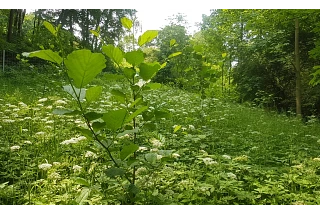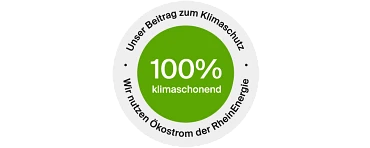Change Language :

Our Commitment to Sustainability
When we first developed high-performance plastics for motion, the topic of environmental protection was admittedly not our main focus. We wanted to develop products that bolstered our clients' manufacturing, improveed technology and reduced costs. Despite this, recycling has always been a sincerely important topic, and we now reuse 99% of our plastic waste by processing it into granulate material and recycling it back into the production process.
Today, we know that products longer lasting products that do not require lubrication contribute to preserving our environment. Eliminating messy, external lubricants means less environmental pollution, less abrasion & less pollution with microplastics, and less weight—meaning less energy required for movement.
As producers of special plastics, we have clients in many industries as well as the sensitive area of medicine. We are aware of our responsibility to the environment along with the possibilities that plastic offers in many areas compared to steel, and we continue to research new materials and products that will benefit our clients and our environment.
Our resource conservation projects and initiatives

igus Announces Partnership with the National Forest Foundation (NFF)
- Detail information about a product, like dimensions
- Crossbars openable along inner radius
- 25% less weight that the previous twisterchain
- Highly dynamic and quieter running (with new trough)
- Successfully tested for over 1 million cycles in the igus® laboratory
- Rotary speeds of up to 1m/s and more, rotary/spiral movements up to 540° (360° from stock)
Update on the path to climate neutrality
In 2021, we achieved 31.2% less CO2 emissions than in 2020. This figure relates to Scope 1 and Scope 2 emissions. The switch to green electricity in mid-2021 and to climate-neutral gas in October 2021 will play a key role here.
Still to be solved:
- Emissions of gases and chemicals from the production of raw materials
- Abrasion during use
- Dependence on the fossil raw material oil
Goals:
- By 2025, we want our buildings and production to be CO2-neutral.
2022 Sustainable Innovations
Before
Production of plastics and parts
After
Plastics after their use

chainge Recycling Program
We launched our "chainge" cable carrier recycling program in 2019. You can send us used energy chains (from igus or other manufacturers). You receive a voucher, and we separate components by type and use them ourselves or supply them to recycling partners. As of 12/2021, we have already received 25.97 tons of material.
Learn More
Chemical Recycling - HydroPRS
We have invested five million euros in Mura Technology, a company that uses a new technology, HydroPRS (Hydro Plastic Recycling Solution), to convert unsorted plastic waste to crude oil within 20 minutes. Conserves resources with pressure, temperature, and water. Construction of the first large-scale plant started in April 2021, and more and more companies are cooperating with Mura Technology.
Learn MoreIn Use
Plastics in use & Self-lubricating
27 million tons of grease pollute the worldwide environment every year. Our polymers do not require lubrication.

50% of all lubricants sold worldwide end up in the environment. (Source: M. P. Schneider, 2006)

1 liter of oil contaminates 1,000,000 liters of drinking water. (Source: Saskatchewan Association for Resource Recovery Corp., 2008)

1/3 of the total fuel consumption of a passenger car is used to overcome friction in the engine, gearbox, tires and brakes. (Source: K. Holmberg, P. Andersson, A. Erdemir, 2012)

Global demand for lubricants will increase by 2 % annually, according to forecasts = 45.4 million tonnes in 2019. (Source: The Freedonia Group, 2015)
99% recycled
99% of our rejects in injection-molding production (sprues, defective parts) are recycled and returned to the manufacturing process.

clean igus program
Mechanical measures such as magnetic foils and guide plates prevent parts from falling out of the machines in the production process and becoming waste. We reduced our waste ratio (production waste + processed material) by 21% in 2021 thanks to these and other measures.

Power consumption
All of the electricity we purchase is green, and we are reducing the amount of power our machinery and equipment consume. We are acquiring injection moulding machines that are 40% more energy efficient and replacing old ones. We reduced power consumption by 11% in 2021 even as we increased production hours.

Certified according to ISO 14001

In order to make our environmental policy transparent and comprehensible, we have been certified according to ISO standard 14001 since 2019, a recognised basis for environmental management systems. This helps us on our way towards a CO2-neutral factory.







